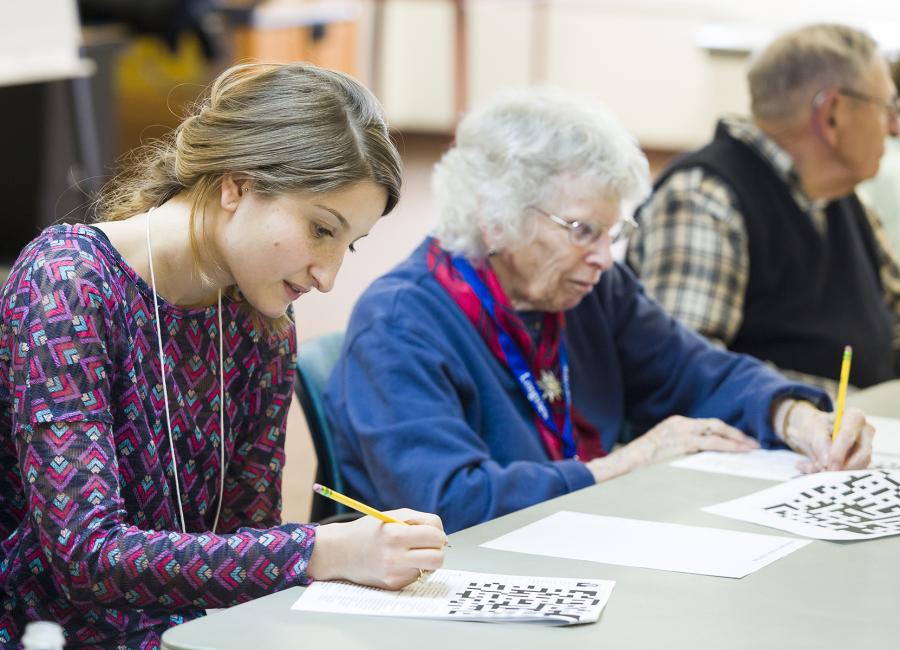- A minor in Aging Studies that allows students to gain real world experience working with older adults while learning about this fast-growing demographic. Aging Studies pairs well with majors like Occupational Therapy and Physical Therapy, as well as other majors in the health or social sciences.
- The Ithaca College/Longview Partnership, providing more than 100 intergenerational learning opportunities for more than 700 Ithaca College students every year. We celebrate many years of vibrant collaboration with the nearby Longview senior living community.
- A center for aging-related programming, conferences, workshops, films, talks, cross-campus and community collaborations for experiential learning, and more.
Gerontology Institute
Ithaca College established the Gerontology Institute in 1992 to serve as a campus and community resource that promotes and supports aging-related research, curriculum development, community education, and community service activities.
We are a multi-faceted organization with a variety of academic and experiential learning opportunities to offer Ithaca College students.

Longview Partnership
We're especially proud of our 25+ year partnership with Longview, a retirement community across the road from Ithaca College which provides experiential learning opportunities for our students. Longview residents participate in campus life by attending classes, social events and working on projects with students from all across campus.